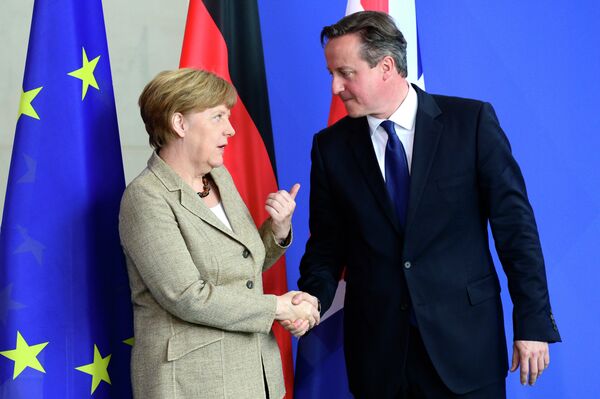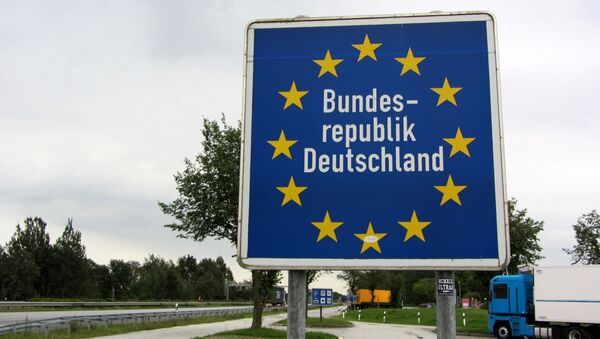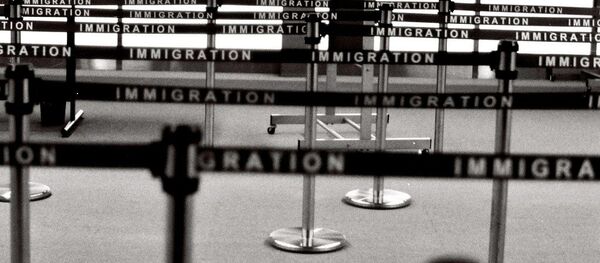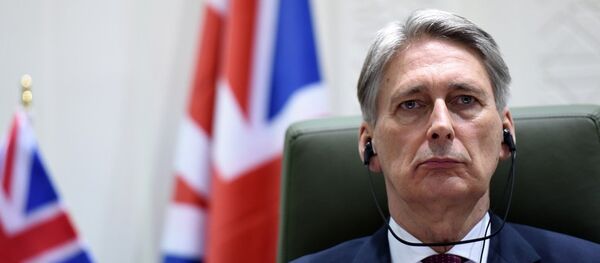But the real rhetoric from the German minister appears to be missed and instead, British media are reporting that Thomas de Maiziere says Germany is prepared to reintroduce border controls to stem the migrant crisis.
However, according to German television news channel N24's website, Thomas de Maiziere has suggested that check-free borders within the European Union aren't fit for purpose without a clear asylum policy in place and operating among all EU members.
"If other European States don't adhere to the law and the Dublin system no longer works, then we need another system that works."
Germany's interior minister tells me that he can't rule out suspension of schengen. Dublin agreement not working says Thomas de Maiziere
— jenny hill (@jennyhillBBC) August 21, 2015
"Control-free borders cannot exist in the long term without a real European asylum policy," Mr de Maiziere said.
But to change the EU's open border policy would require a major change in European treaty. The area of free movement within Europe is called the Schengen area and was established in 1995.
Any migrant arriving on the shores of one country can freely travel to another to claim asylum there.
A record 800,000 people are predicted to arrive in Germany and apply for asylum this year. De Maiziere says the country will cope for now, "but long-term, 800,000 per year is too much for a country the size of Germany."
France & Germany bet on October EU summit to solve #refugees #asylum crisis #frontex #schengen http://t.co/JMylYnDdPE pic.twitter.com/6LgrrFwZqE
— The Local Germany (@TheLocalGermany) August 21, 2015
He told broadcaster ZDF that Germany is now taking 40 percent of all refugees in the European Union and more pressure needs to be put on other EU countries to accept more asylum seekers.
A proposal by the European Commission to implement a quota system among all EU member states has been rejected by several countries, including the UK.
However, Britain's Prime Minister David Cameron doesn't mind the 'free movement' principle if people want to work — but is calling for a treaty change to deter EU migrants from claiming benefits for the first four years they are in the UK.
Meanwhile, there are also calls from Germany's Social Democratic Party (SPD) to reconsider the EU treaty — the Dublin Agreement.
The Dublin Rules, officially known as the 'Dublin III Regulation' is based on the principle that the first Member State, where fingerprints are stored or an asylum claim is lodged, is responsible for a person's claim. The Dublin III Regulation applies to all member states — except Denmark.
EU's Dublin Agreement says illegal immigrants must apply for asylum in first European country they set foot in! Why does nobody know this?
— Retnar (@retnar2015) August 18, 2015
Leader of the SPD, Thomas Oppermann told the Rheinischen Post newspaper that Europe needed "a new refugee arrangement" — suggesting that the Dublin agreement had "collapsed".
I must say that I like the Euro, the Single Market with free movement, and the Schengen Agreement. In short, I like belonging to the #EU
— Kimmo Grönlund (@kimgron) August 20, 2015
In July alone, 50,000 migrants arrived in Greece, a country faced with building itself up from the brink of bankruptcy. But German vice chancellor Sigmar Gabriel said it's not the financial crisis in Greece that poses any danger for Europe:
"If something endangers the European Union in danger, then it's this kind of non-existent policy on refugees."

But that was last year — and the borders across Europe weren't in the middle of migrant crisis with record numbers of people traveling on every route possible from the Middle East and North Africa to reach Europe.
So, maybe Merkel will be forced to change her mind or EU member states will be forced to implement a clearer asylum policy, one that is fit for purpose.




